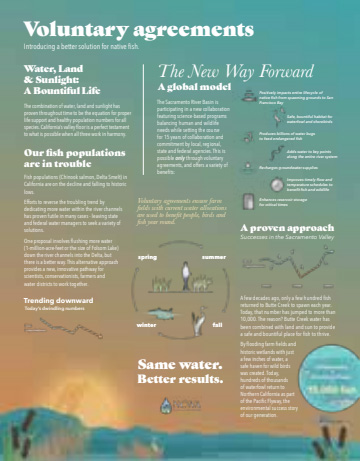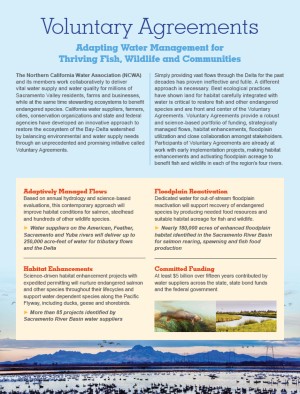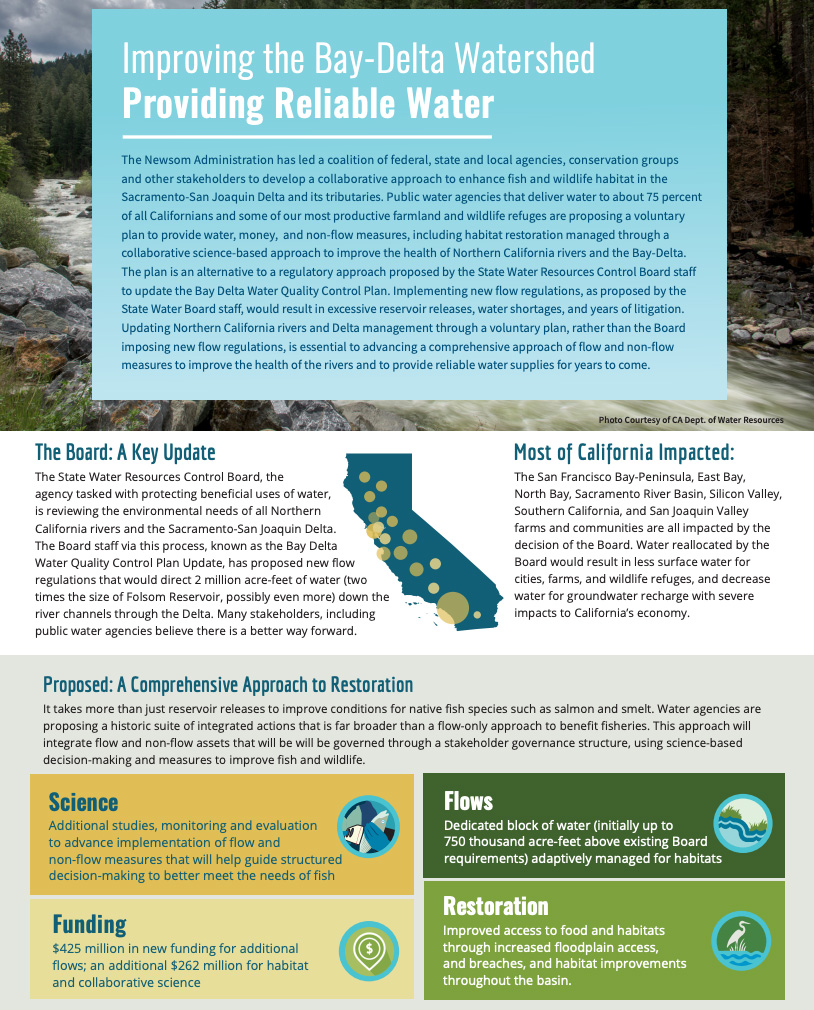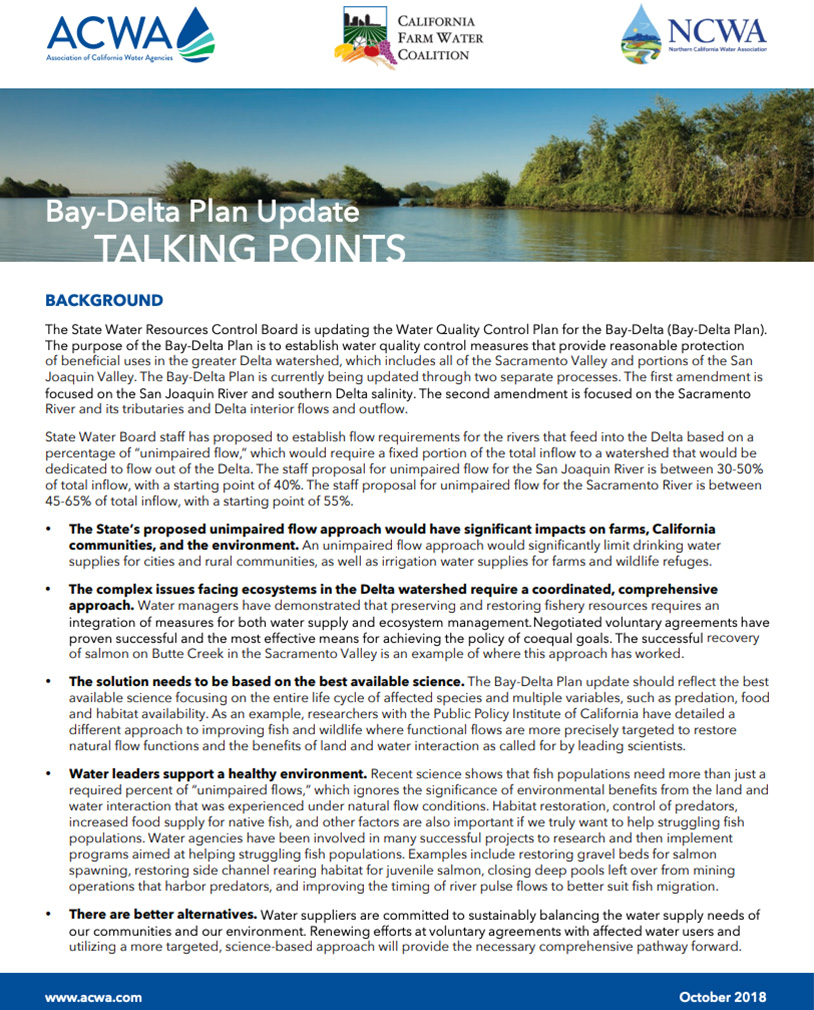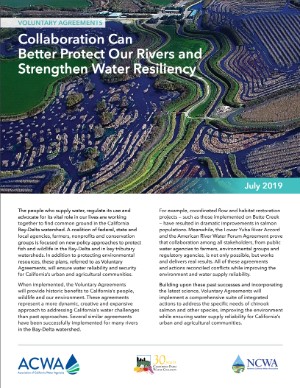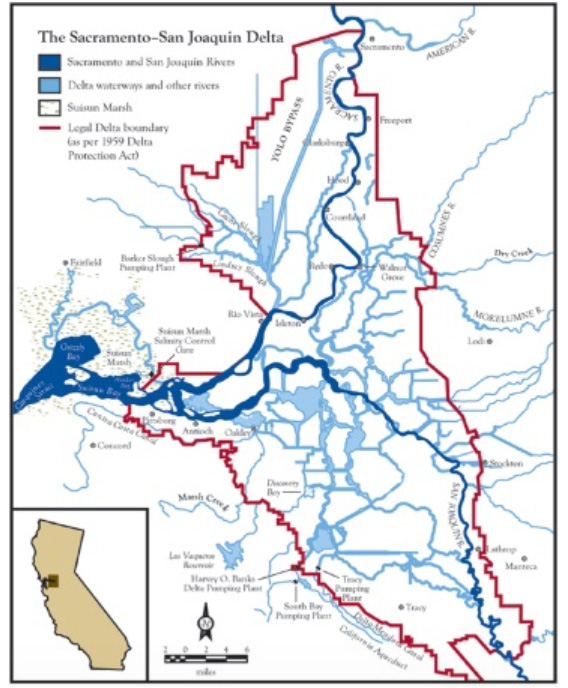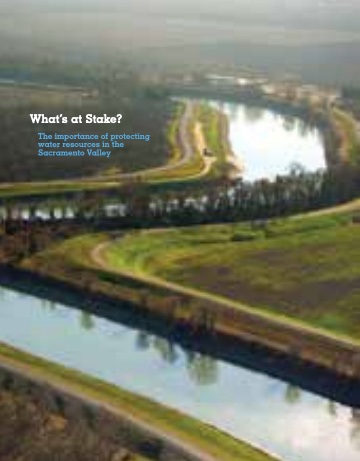The Sacramento-San Joaquin Rivers Delta and San Francisco Bay (hereinafter “Bay-Delta”) is an important economic and environmental resource benefitting all of California and the nation. The Northern California Water Association (NCWA) and Sacramento Valley water resources managers recognize the importance to California’s future of a healthy Bay-Delta and providing high quality and reliable water supplies for all beneficial uses, including cities and rural communities, farms and ranches, fish and wildlife, recreation, and hydropower.
For the past thirty years, NCWA and the Sacramento Valley water suppliers have been a strong and constructive participant in the various processes designed to help solve the challenges in the Bay-Delta. We will continue to play a constructive role in implementing necessary solutions to Bay-Delta problems, supporting the state’s co-equal goals to 1) provide a more reliable water supply for California and 2) protecting, restoring, and enhancing the Delta ecosystem.
To help the State Water Board advance a water quality control plan update that truly balances the different beneficial uses in the Bay-Delta watershed, Sacramento Valley water suppliers have worked with water suppliers throughout California and various state and federal agencies to advance the program on the Agreements to Support Healthy Rivers and Landscapes (HRL), previously fashioned as voluntary agreements. We believe California needs a new approach for the Bay-Delta to help ensure water supplies for cities and rural communities, farms, fish, birds, and recreation—a modern 21st century approach to water management that will protect all beneficial uses of water.
For more detailed information on the Healthy Rivers and Landscapes Program, we encourage you to:
- Watch a whiteboard video here;
- Visit the California Natural Resources Agency website
- Read more on the Agreements to Support Healthy Rivers and Landscapes
- Review the report that Highlights Advantages of Healthy Rivers and Landscapes Program Over the 55% Unimpaired Flow Scenario
There is broad support and unity throughout California—from Redding to the Mexican border—for the Healthy Rivers and Landscapes Program as the preferred alternative to the State Water Board to advance in 2025. For more details, see here.
The NCWA Board of Directors convenes a Bay-Delta Task Force that meets monthly to coordinate all the various efforts in the Sacramento Valley surrounding the Bay-Delta and to bring our team of Directors, water resources managers, attorneys, biologists, and engineers together to coordinate, strategize and take action to help manage the water resources in our region for multiple beneficial uses.
For additional resources on the Delta, please see the following:
- WEF’s Laypersons Guide to the Delta
- Bay-Delta Live
- Delta Conservancy
- Delta Protection Commission
- Delta Stewardship Council
- North Delta Water Agency
- San Francisco Estuary Institute
For more information on the Heathy Rivers and Landscapes Program, see the following:
